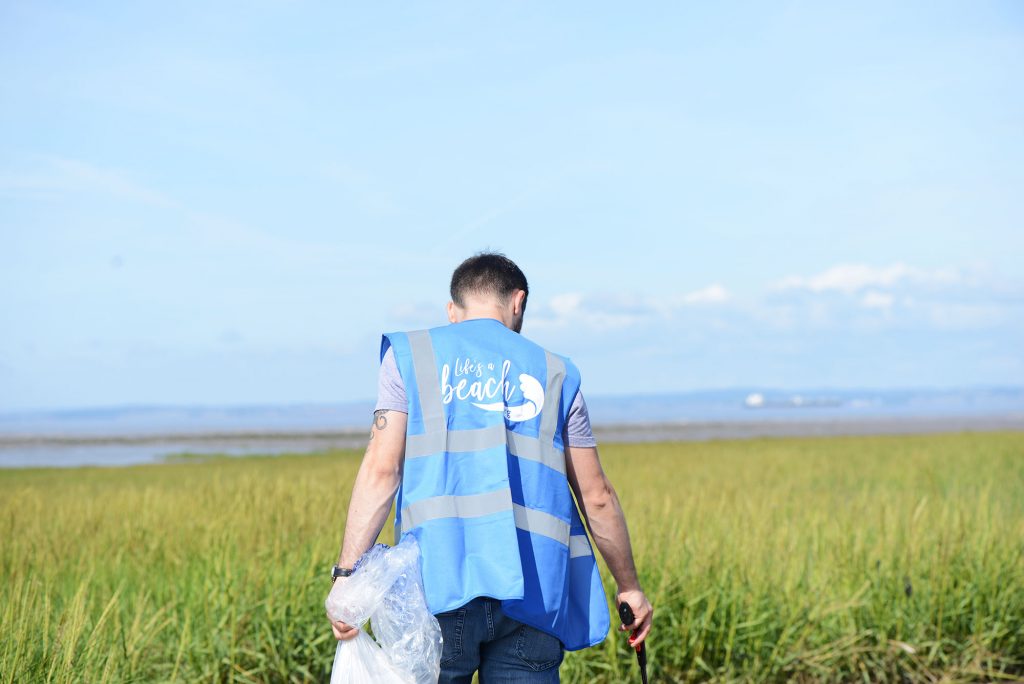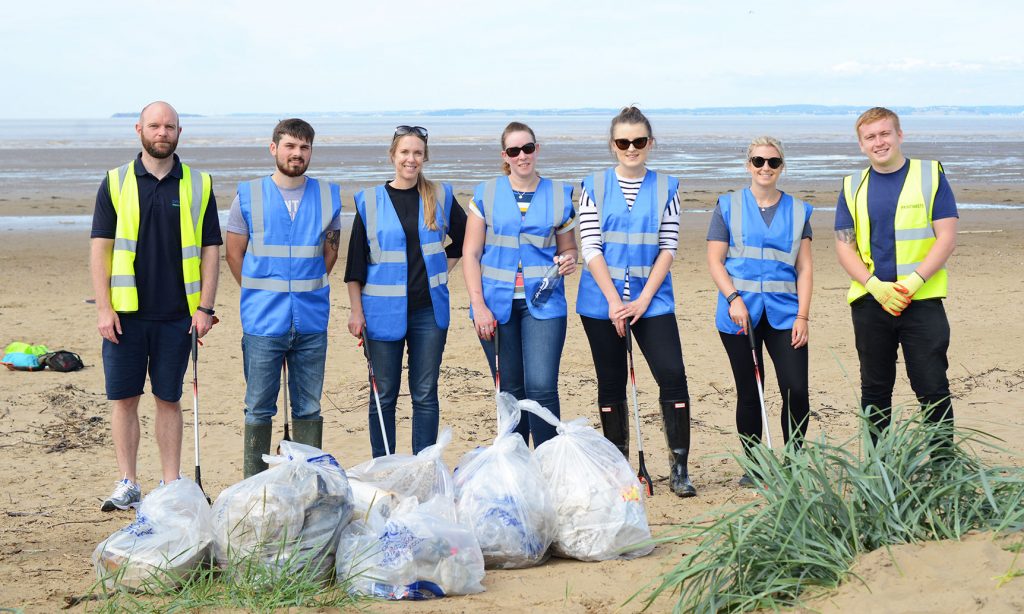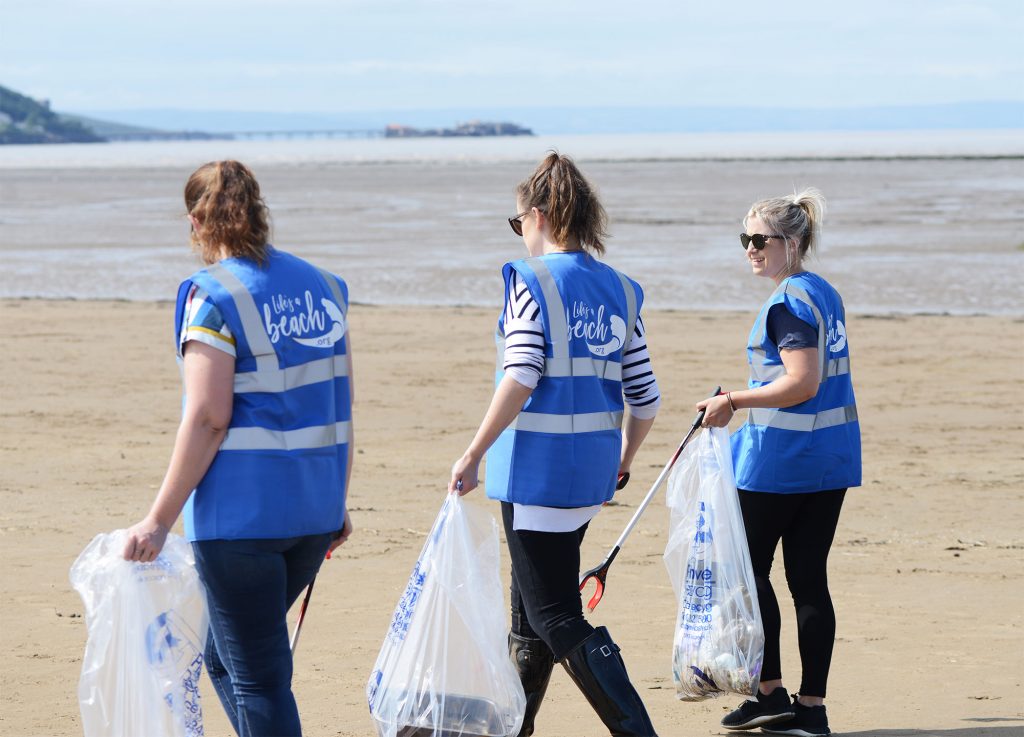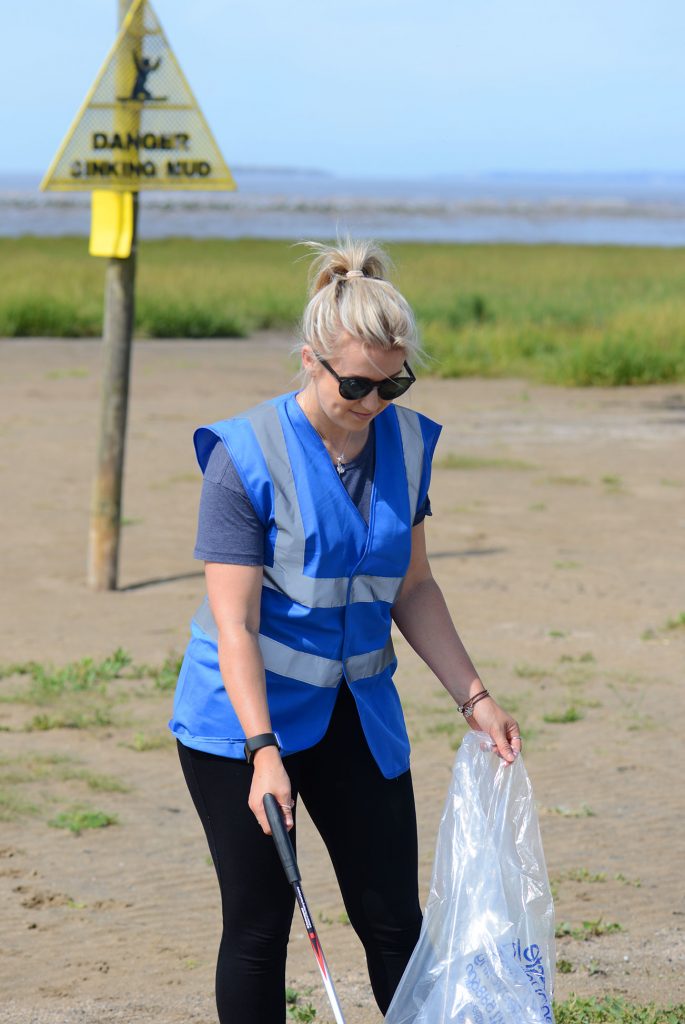8th August 2019, Sand Bay
During the summer holidays thousands flock to the Weston-Super-Mare region for days by the seaside building sandcastles and paddling in the sea, but sadly not everyone is just as eager to take their litter with them as they leave. Many Life’s a Beach volunteers have seen the issue first hand when visiting the area so it became a natural spot for us to head to for our first self-hosted beach clean so we packed up the cars, organised a meeting spot and headed to the beach!

Life’s a Beach volunteer, Lukas picking litter at Weston-Super-Mare’s Sand Bay
We teamed up with the fantastic Gloucestershire-based business, Printwaste who volunteered to collect and dispose of all the litter we collected as well as sending a couple of volunteers to help with the clean and without them the event would not have been such a great success. They provided the whole team with bin bags, explained how to sort the litter once collected and told us all about how anything collected that couldn’t be recycled would go through an energy recovery process and avoid landfill (more about this later).
Upon arrival at Sand Bay the team was pleased to discover the beach is already well looked after by locals, but with some clearing still to be done they got stuck in to litter collecting resulting in a total of 25kg worth of waste being collected. The team spread out and began to comb the beach for waste taking care to leave local fauna and wildlife alone, and after an hour of picking we met back up to combine what we’d collected.
Along with the typical litter we expected to find such as sweet wrappers, fizzy drink cans and food packaging we found some more surprising items including a metal roasting tin, one barely worn trainer, an almost full bottle of olive oil, lots of polystyrene, a fisherman’s bucket and even a message in a bottle!

Energy recovery
Printwaste took all the bags we had filled back to Gloucestershire where anything that could be recycled would be, and anything that could not would be put into an energy recovery (waste-to-energy) process.
Once collected, the non-recyclable litter is discharged into a bunker where it is mixed by a grab crane operator and sprayed with water to reduce odours and dust. It is then sent down a feed hopper into a furnace where it is dried and burnt at a temperature of approximately 1000°C! The hot flue gas that is created is a source of renewable energy and the incinerator bottom ash is then used within construction.
The hot flue gases travel through a boiler that heats the water in the pipes which then turns into steam. The steam then causes the turbine to start moving which in turn generates electricity. To avoid dangerous emissions, the gases from burnt waste are cleaned thoroughly with lime neutralising acidic gases and carbon, removing dioxins and heavy metals. The gases pass through a fine fabric filter capturing any remaining particles before they are released through a chimney ensuring a sustainable and environmental process.
By taking this energy recovery route we are able to keep the non-recyclable litter collected from landfill, and we’re delighted to share that we’ll help recover 15.625 kWh of electricity from the litter collected, that’s enough to boil 156 kettles and make 1,250 cups of tea or coffee!

We fund our beach cleaning efforts through the sale of the Life’s a Beach range on the ProCook website, in ProCook stores and on our Amazon site. 10% of every sale goes to Life’s a Beach and means that we can organise events such as these, or support events held by others to help eradicate single use plastics from British beaches.
For more information surrounding the work of Life’s a Beach click here.


